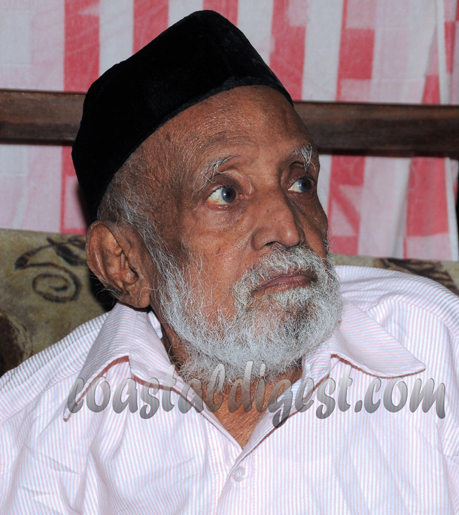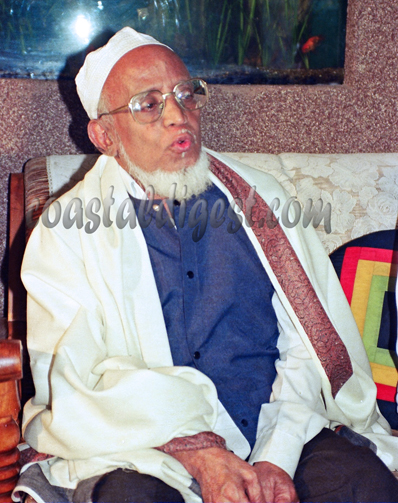 In a community where literary figures are not adorned, it is a tiresome idea to stay afloat with one’s literary interests unbridled. It is not that community has censured them, but to spread the idea of literary innovation it has taken a generation of a time!
In a community where literary figures are not adorned, it is a tiresome idea to stay afloat with one’s literary interests unbridled. It is not that community has censured them, but to spread the idea of literary innovation it has taken a generation of a time!
Noorie Sab, as he was fondly called, churned out a host of literary works in Kannada while dwelling on a delicate balance of community and larger state. However he concentrated in cultural and religious mores of Bearys, a community poised to play a bigger role in literature and media.
Though Noorie Sab excelled in journalistic and academic circles, his main thrust remained empowering a forlorn community which needed a new impetus to catch on with the changing times. Communities and diverse faiths have adorned the Indian Nation from times immemorial. However the disparity of castes has sometimes hindered their positive development. Building self-esteem within a community is an onerous task which should take place by its thinkers, intellectuals or those social scientists whose dreams shape a community.
Noorie Sab had a dream. He wished to catch hold of Kannada as a medium for brisk surge of the community in the path of development. He could visualize the potential of Bearys to excel in Kannada and alter the landscape of Kannada literature and media. However for quite some time Bearys were entwined with the Mapillas of Kerala for their literary needs. Yet in a desperate bid to find a foothold, Noorie sab penned Maikala, a path breaking treatise in Kannada which recorded socio cultural perceptions of a community and times right from independence until the sixties. But he could not find many a taker. An untiring personality tried to play on diverse levels contributing his best in different fields. However he remained steadfast to resurrect the community from the inertia as far as literary pursuits were concerned. He persevered in hoisting various newspapers and periodicals while contributing his literary best in vernacular magazines. He brought out a host of children literature through Al-Hasan Book Centre by involving academicians and writers of eminence. He drew many an academician into understanding Islamic precepts positively by publishing their works in Kannada. Especially the translation of ‘Towards Understanding of Islam’ by Prof M.R. Gajendragad was memorable. He was precursor to the popularisation of Kannada in an otherwise reluctant community torn between rejection of English and indifference to Kannada.
Muslims have a special attachment to holy Quran. Noorie Sab and his team lent a new perspective by bringing out a Kannada translation of holy Quran in 1978. An ambitious work while drew applause from the literary circles, a large part of Muslims welcomed it with mixed feelings. To be a pioneer, to be steadfast in a community drenched in colonial past needed strong resolve. Noorie Sab stood ground but he had not many fans in a forlorn world which knew no literary applause! While it made sense to be a Salman Rushdie or Sara Abubakkar, the literary endeavour of this noble soul was on the periphery of extinction. Literary world of Bearys has taken a plunge with the rise of competing ideologies and diversity of thoughts among Muslims across the world.

Ahmed Noorie was a dreamer. He dreamt of youth who would carry forward the mission of enlightened thinking, values driven journalism towards a healthy society.
He was born in Mangalore. His native perceptions and attachment to its ethnic mores was of course the optimum. He enjoyed composing songs in Beary language which was like folklore of his times. In a fitting tribute to his ardent contribution Beary Sahitya Academy has published them in CD form which should inspire the posterity! A well lived life for the literary world while a noble endeavour to set an example by treading Gandhian values. An ardent believer in Prophet Mohammed’s(pbuh) glittering personality strode the path of excellence to popularize the Prophet’s(pbuh) unfailing teachings.
He was a family man too. He loved to acquaint with friends and literary circles. Muhammmed Kamal, C.K. Hussain, Judge Raheem of Sadaqat fame, Ameer Hussain, Owner of Modern press Mangalore, Fernandes of Fr. Mullers to name a few were his contemporaries who augmented his literary pursuits and himself leaving an impression upon their endeavours. Prof M. R. Gajendragad, ex-vice chancellor of Kuvempu University would always call upon him as a family friend to inquire about his health and wellbeing.
Noorie Sab’s demise should open the doors for all those budding writers who exude talent for an era of Kannada renaissance, who will dwell on ethnic writing with socio cultural and religious values. Any community would arise due to its indigenous original writers who have honestly brought new mores while sticking to humanitarian and religious values on a rational footage. Ahmed Noorie leaves a lasting impression on Kannada literature and Beary folklore.





Comments
Add new comment